Shiitake mushrooms are some of the most widely cultivated gourmet mushrooms in the world.
They’re brown shrooms with a woody stem and thin cap, commonly found in East Asian cuisine. Once dubbed the “elixir of life,” they have been lauded for centuries.
Shiitake mushrooms are excellent in stews, sautés, rice dishes, soups, and more.
Not only are these wonderful mushrooms easy to incorporate into just about any recipe, they’re incredibly healthy and can be made into a tea.
Never had a shroom tea before? We’ll walk you through it.
What is shiitake mushroom tea?
Shiitake tea is exactly what it sounds like–tea made from mushrooms! As you may or may not know from our other articles, mushroom tea comes in two types. It can be made from powder form like a supplement, or after you’ve dehydrated them and ground them, or with shiitake tincture.
Tinctures are herbal extractions, and only a few drops are needed for full effect so they’re an easy addition to your favorite tea. It can also be added to your morning coffee oatmeal, smoothies, or whatever you feel like adding to.
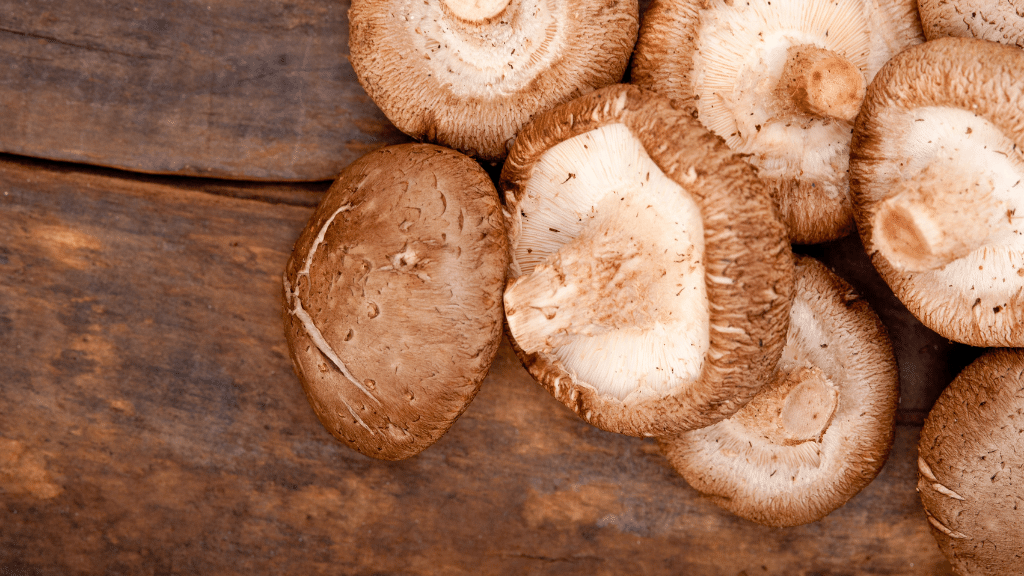
What are the health benefits of shiitake mushroom tea?
Shiitake mushrooms are packed with incredible vitamins and minerals that make them a staple to any well-balanced diet.
According to FoodData Central, the nutrients in 4 dried shiitake (15 grams) are:
- Calories: 44
- Carbs: 11 grams
- Fiber: 2 grams
- Protein: 1 gram
- Riboflavin: 11% of the Daily Value (DV)
- Niacin: 11% of the DV
- Copper: 39% of the DV
- Vitamin B5: 33% of the DV
- Selenium: 10% of the DV
- Manganese: 9% of the DV
- Zinc: 8% of the DV
- Vitamin B6: 7% of the DV
- Folate: 6% of the DV
- Vitamin D: 6% of the DV
Shiitake mushrooms are low in calories, high in fiber, high in protein, and packed with vitamins and minerals.
Early studies of shiitake mushrooms show that the active compounds - like beta-glucans - may help to fight cancer and showcase anti-tumor properties. More research is needed in order to fully understand the potential health benefits of shiitake mushrooms.
Animal studies also showcase the potential of shiitake mushrooms to lower cholesterol levels.
It’s no wonder shiitake is the second most cultivated mushroom in the world (after the button mushroom).
It provides a vast amount of nutrients and benefits, which are easy to take advantage of and incorporate into your daily routine.
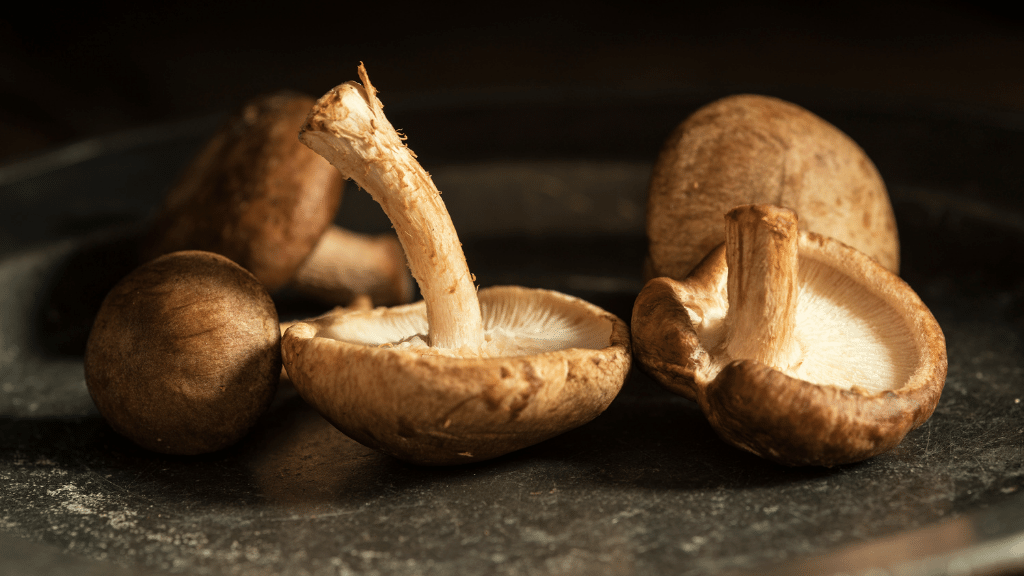
What does shiitake mushroom tea taste like?
So what does this tea taste like? Depending on the recipe you use, you can expect shiitake tea to taste very similar to mushroom broth - which is great if you already enjoy that distinct umami flavor.
It’s earthy with a slightly bitter flavor, which can be adjusted with some salt, soy sauce, or tamari depending on your preference.
If you’re a fan of soups and stews, shiitake tea is a great choice for you.
Whether it’s first thing in the morning or a mid-afternoon sip, shiitake mushroom tea is perfect any time of the day.
Why is shiitake mushroom tea so powerful?
Brewing shiitake tea is like a mini extraction, the process used to make a tincture. There are a few ways to perform an extraction including hot water, alcohol, and dual, all with varying benefits.
Shiitake mushrooms are packed with polysaccharides, terpenoids, sterols and lipids, that participate actively in several human disorders and modulate mechanisms involved in the immune system regulation. Source
Shiitake tea has been used for centuries in China, Korea, and even parts of eastern Russia.
Shiitake tea is great to try if you have a lingering cold, viral infection, or are incorporating more medicinal mushrooms into your diet to help with other diseases that may benefit from the powerful polysaccharides of mushrooms.
Tea is a great way to get the maximum benefit from your medicinal mushrooms. Brewing tea with mushrooms creates a mini hot-water extraction. Many of the polysaccharides in mushrooms - including shiitake mushrooms - are hidden behind the mushroom's tough exterior cell walls. Brewing tea allows some of the beta-glucans and polysaccharides to be released and then absorbed more readily by our bodies.
Now that we know some of the history, uses, and benefits, let's talk about how to make it!
Where can I buy shiitake mushrooms?
Luckily for you, shiitake mushrooms are one of the most popular gourmet mushroom varieties sold in most supermarkets. Head to the produce aisle and look for them there. Big chains usually carry them. But if that fails, try a specialty produce store or your local farmers market.
Find mushroom farms near you with our interactive map!
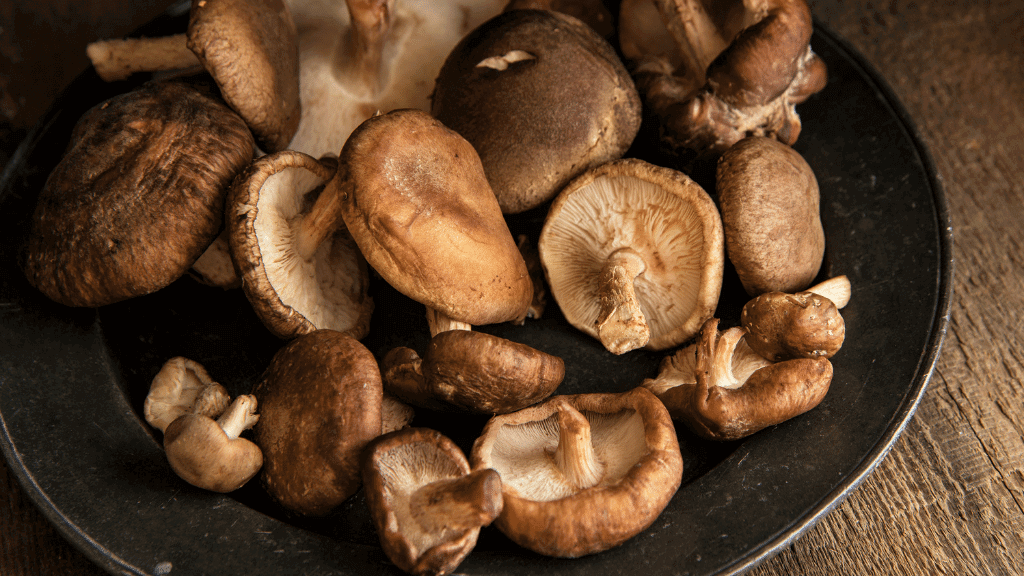
How to make shiitake mushroom tea
Is it hard to make shiitake tea? Not at all! You can easily brew a few cups in the morning before you dive into your day.
Shiitake tea also makes a great broth base for soups and stews.
If you want to make shiitake mushroom tea at home, you’re in luck because it’s a simple process.
Here's what you'll need:
- 3-4 dried shiitake mushrooms (around 15 grams) - For a stronger tea, use more mushrooms. Here's a complete guide to drying your mushrooms if you have fresh ones!
- 1 cup of fresh water per whole mushroom. We recommend spring, distilled, or bottled mineral water for the best results.
- A heavy-bottom pot like a sauce pot or dutch oven
- A slotted spoon or strainer (that can scoop out your dried mushrooms from the water)
- Optional flavor additives like turmeric powder, salt, soy sauce, tamari, and more
Here's how to make shiitake tea:
-
Gather as many mushrooms as you’d like to add to your tea (we recommend 3-4, but don’t be afraid to experiment!)
-
Add one cup of water for each of your mushrooms to a pot. Then, add your mushrooms. Do not add heat just yet. You'll want to let your dried mushrooms soak in the water for about 30 minutes.
-
After 30 minutes has passed, gently scoop the mushrooms from the water with a slotted spoon. They’ll be mushy, which is exactly what you want. Put them on a cutting board.
-
Finely chop the now mushy mushrooms and toss them back into your pot.
-
Time for the heat! Bring the mushrooms into a gentle boil. Immediately reduce the heat to the lowest setting so that your mushrooms are not quite boiling, but are heated. Let your mushrooms simmer for 15 - 20 minutes or as long as 40 minutes.
-
Remove the pot from heat and set aside. Now it's time to add your additives:
-
Optional: you can add a tsp turmeric, liquid aminos, a dash of tamari, a pinch of salt, or soy sauce to adjust the flavor. Experiment with different levels of each to see what you like best.
At this stage, you can filter your mushrooms out or leave them to float in your tea. Pour into mugs and enjoy while it's warm.
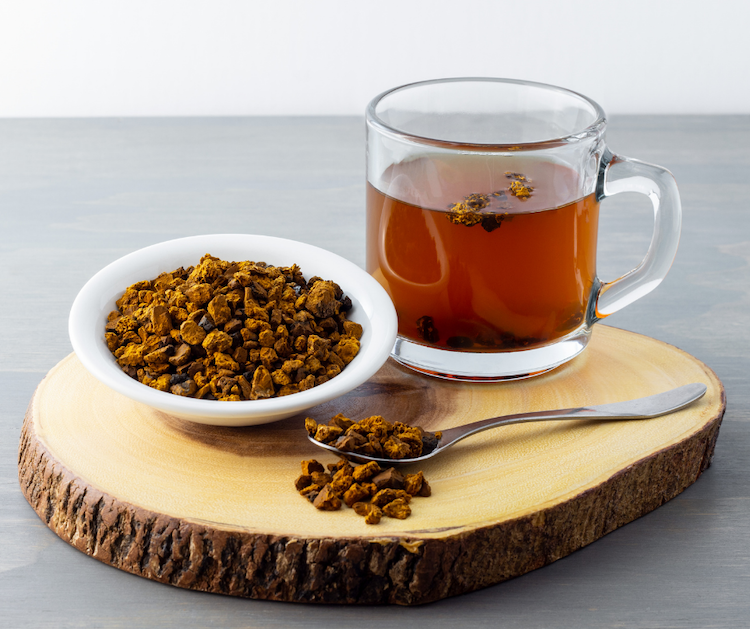
Can you make shiitake tea with fresh shiitake mushrooms?
Most recipes for shiitake tea say to use powdered or dried mushrooms, but is it possible to make the tea out of fresh mushrooms? Yes it is! And it’s not a big change to the recipe. We still recommend soaking your mushrooms for 30 minutes before chopping.
Brew your tea following the same steps above and enjoy!
How to dry shiitake mushrooms for tea or broth
In order to continuously brew your shiitake mushroom tea, it’s a good idea to have a supply of dried mushrooms on hand. Drying your mushrooms is a great way to make the most of your mushrooms, extending their shelf life and adding nutrients to your diet.
There are several ways to dehydrate your mushrooms including using your oven, air drying, in a dehydrator or desiccant, and more. Each method is as effective as the others, so preference comes down to whichever you like best. Others are more cost effective than others like air drying, since you don’t need additional equipment.
There are several benefits to drying your mushrooms, including:
-
Maintaining their flavor
-
Extending their shelf life
-
Powerful health benefits
-
Multiple methods of consumption
Our extensive guide on how to dry mushrooms details the many methods with tips, including how to make your own desiccant!
Now that you know how to make this tea, you’re ready to make it yourself. There is no right or wrong way to make shiitake mushroom tea. You can add these wonderful mushrooms to just about any dish and feel the benefits in your body.
Want to try other types of mushroom tea?
Try these related recipes!
Thanks for learning with us! Have you tried a different kind of shiitake tea? Let us know!

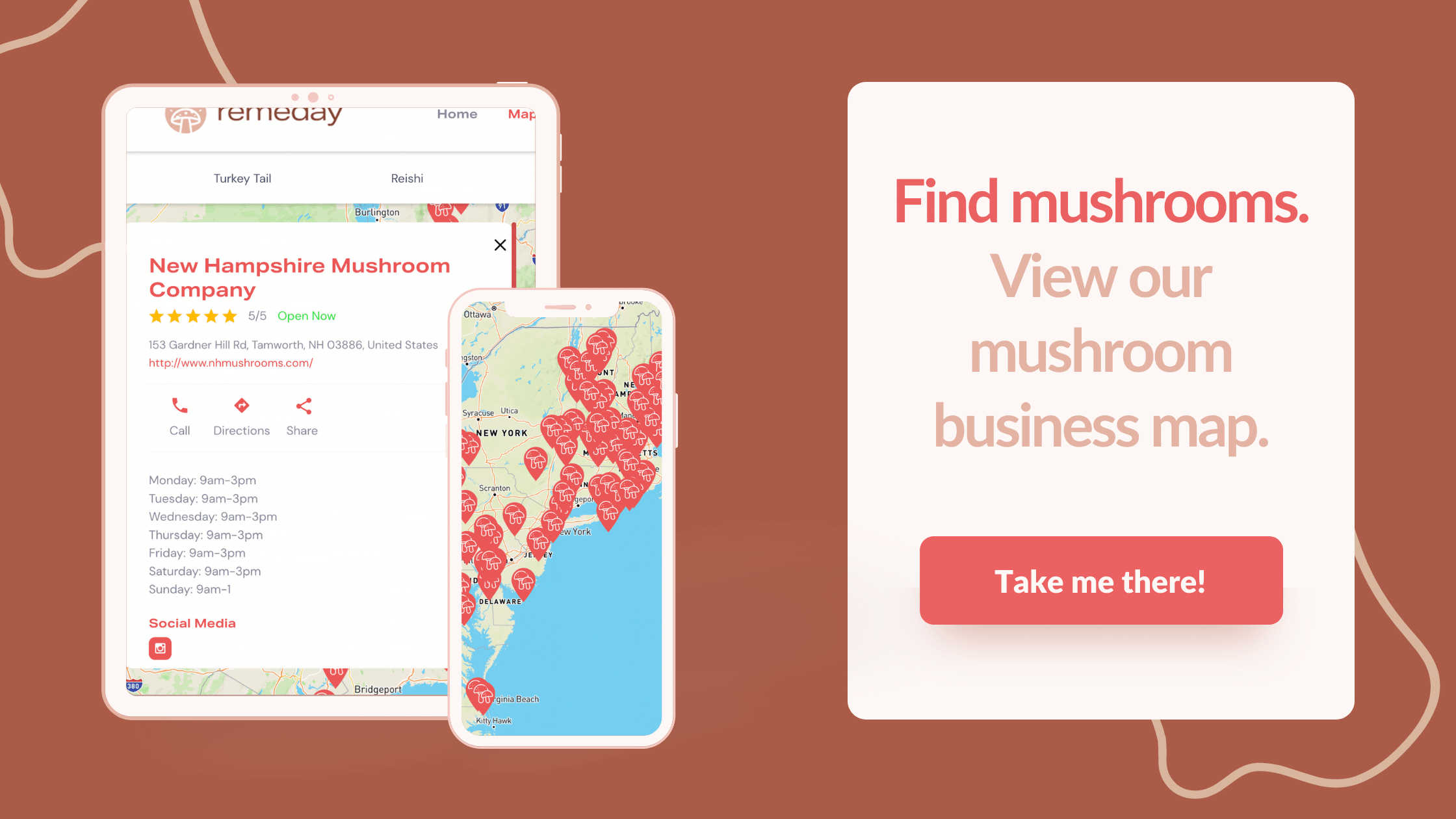

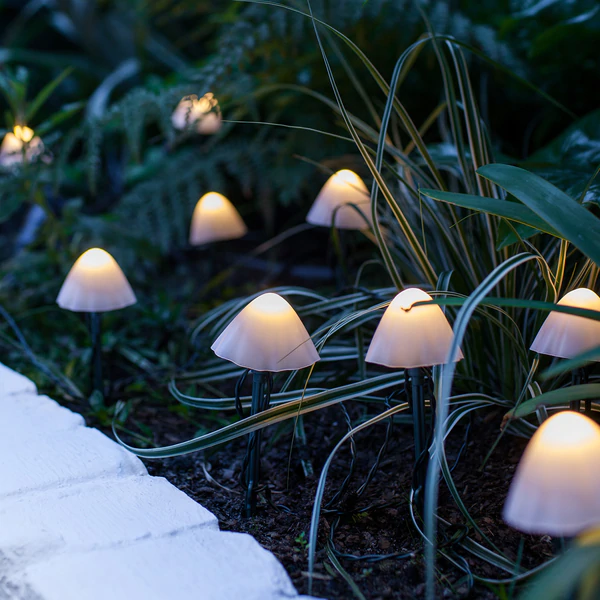


.png)
